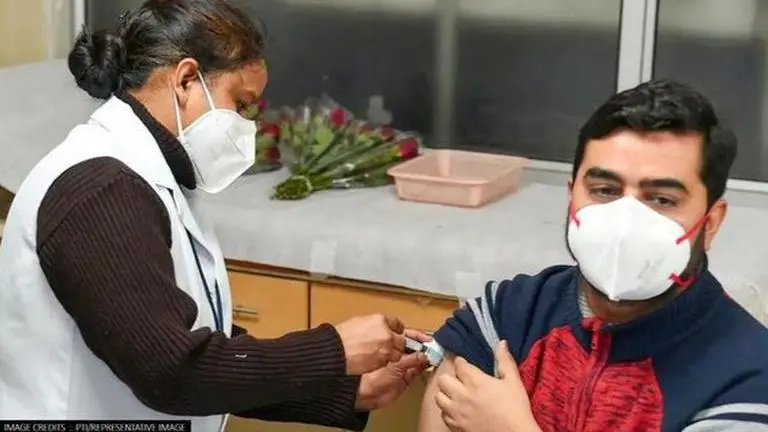Updated 8 September 2021 at 17:05 IST
Antibodies are less effective against replication of Delta variants, claims study
A study discovered that immune responses to the Sars-Cov-2 Delta variation were reduced by six-fold, while those elicited by vaccination were reduced by 8-fold.
- Lifestyle News
- 3 min read

Immune responses to the Delta variant of the Sars-Cov-2 were reduced by six-fold, while those produced by vaccinations were reduced by eight-fold, found a study led by Indian and British experts.
The Delta variation (B.1.617.2) is superior at replication and resisting antibodies, note study authors, which enabled it rapidly overtake Alpha (B1.1.7), which was at the time the most transmissible version of the Coronavirus.
Antibodies are less effective against Delta variant
The study noted, "The SARS-CoV-2 B.1.617.2 (Delta) variant was frst identifed in the state of Maharashtra in late 2020 and spread throughout India, outcompeting pre-existing lineages including B.1.617.1 (Kappa) and B.1.1.7 (Alpha)1. In vitro, B.1.617.2 is 6-fold less sensitive to serum neutralising antibodies from recovered individuals, and 8-fold less sensitive to vaccine-elicited antibodies as compared to wild type (WT) Wuhan-1 bearing D614G."
Researchers detected lower ChAdOx-1 vaccination efficacy against B.1.617.2 compared to non-B.1.617.2 in an analysis of over 130 SARS-CoV-2 infected healthcare workers across three centres in India during a mixed lineage circulation period, despite possible residual confounding, the study said. According to the study, anti-B.1.617.2 Delta variant vaccine efficacy has been compromised, hence infection control measures must be maintained in the post-vaccination era.
However, when compared to the Indian Delta form, the British Alpha variant caused only a 2.3-fold reduction of antibody potency in recovered COVID-19 patients. The people who had a previous illness or who had received either the Oxford-AstraZeneca vaccination or the Pfizer-BioNTech shot were studied. Later, in a laboratory, they were used to neutralise all of the varieties of Alpha, Beta, and Delta.
Advertisement
Research address why Delta version appears to be fitter
The study revealed that Beta (originally discovered in South Africa) is the most evasive variation, followed by Delta and Alpha. Because of this danger, infection control measures – such as masking, social distancing, and handwashing – must be maintained even in the 'post-vaccination period'.
The Delta version appears to be more fit than the others, but having a lower antibody resistance than the Beta variant, is also addressed in the study's conclusion. According to lab tests, the Delta form is more effective in entering human cells and replicating within them. Particularly, it achieves this by altering in order to increase the efficiency of its fusion with the host's cell. As a result of research on epithelial cells (the lining) of airways and lungs, and on 3D organoids, the Delta variation is also able to replicate more widely than the Alpha type (mini-organs grown from airway cells).
Advertisement
What has been noticed all throughout the world, starting with India in mid-April, can be explained by these clues. When the variation hit the country in a rush, it overwhelmed the country's testing and treatment resources. However, the wide immunisation rate in the UK helped prevent a large outbreak, unlike when Alpha broke out in the winter months.
(Image Credit: PTI/RepresentativeImage)
Published By : Srishti Goel
Published On: 8 September 2021 at 17:05 IST
